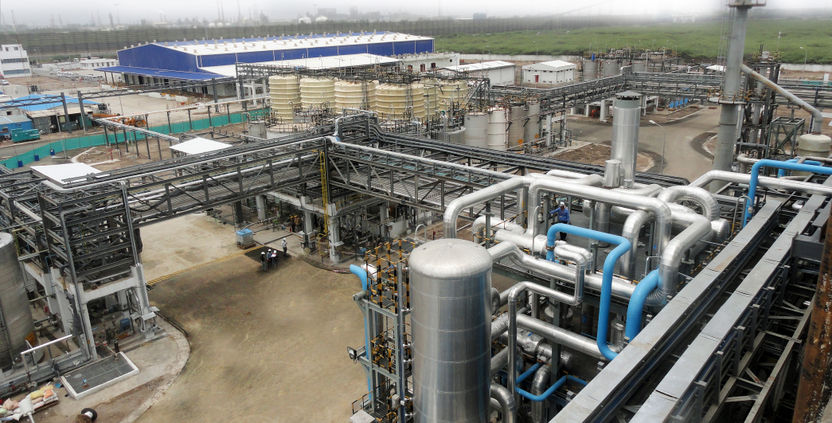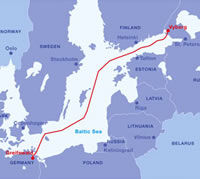Europe's resilience of natural gas networks during conflicts
gas networks in Eastern European countries, such as Ukraine and Belarus are less resilient than the UK during conflicts and crises, according to new research from mathematicians at Queen Mary University of London.
The authors suggest that a decentralised approach to managing congestion on gas pipeline networks could be crucial for energy security during geopolitical conflicts or natural disasters, for example.
"Natural gas accounts for 24 per cent of energy consumption in Europe*," said co-author Professor David Arrowsmith from Queen Mary's School of Mathematical Sciences.
"Nations are now undergoing unprecedented change in the nature of energy resources and in their increased interdependency on each other for the security of supply."
Hypothetical scenarios that involve the removal of supply or transit countries from the network were used to create a model that analysed how nations and urban areas are affected.
The scientists found that countries in Eastern Europe are less resilient to a variety of crises than their counterparts in Western Europe.
They analysed the effect of supplying Eastern Europe from Norway and the Netherlands, during an imaginary crisis with Russia, and found that only 5 per cent of demand in Ukraine could be met, even if the West lowered its demand significantly.
They also found that Austria would be considerably affected in such a scenario, not only because of it becoming part of a new West-to-East corridor to supply gas to Eastern Europe, but also because of its considerable dependency on Russian gas.
However, the UK would be spared in a short-term crisis with Russia or Ukraine, but would suffer considerably in a potential crisis with Norway or a loss of supply from Liquefied Natural Gas (LNG).
Co-author Rui Carvalho, Research Fellow at Queen Mary's School of Mathematical Sciences, commented: "Our decentralised control algorithm, which is inspired by mathematical models of internet traffic, manages any disruption automatically, by minimising network congestion in a way that is fair to all parties involved.
"However, to mitigate the effect of crises, nations must ultimately cooperate by sharing access to their energy networks."
Professor Arrowsmith added: "It is a serious challenge to provide informed comment on the resilience of the changing international energy supply and demand networks, not least in deciding the criteria by which governments and energy supply companies should operate for a beneficial distribution of resource.
"The paper is an attempt to develop a framework for fairness of gas network flow and a discussion of networks at a continental level.We hope that the paper provokes serious discussion."
Most read news
Other news from the department science

Get the chemical industry in your inbox
By submitting this form you agree that LUMITOS AG will send you the newsletter(s) selected above by email. Your data will not be passed on to third parties. Your data will be stored and processed in accordance with our data protection regulations. LUMITOS may contact you by email for the purpose of advertising or market and opinion surveys. You can revoke your consent at any time without giving reasons to LUMITOS AG, Ernst-Augustin-Str. 2, 12489 Berlin, Germany or by e-mail at revoke@lumitos.com with effect for the future. In addition, each email contains a link to unsubscribe from the corresponding newsletter.
Most read news
More news from our other portals
Last viewed contents
Turning smartphones into personal, real-time pollution monitors
CSM and Indorama Ventures in Alliance Discussion for PLA
OCSiAl Builds Worldwide Partnership Network
Getting the salt out - Study shows electrodialysis can provide cost-effective treatment of salty water from fracked wells
W. C. Heraeus Becomes Majority Shareholder of Vadnais Technologies Corporation

Production begins at BASF’s largest Indian investment to date - BASF inaugurates chemical complex in Dahej, India
Semiconductor_sales_leaders_by_year

LabVision-System | Laboratory automation systems | HiTec Zang
LZH Spin-off "Particular GmbH" Starts Up



























































